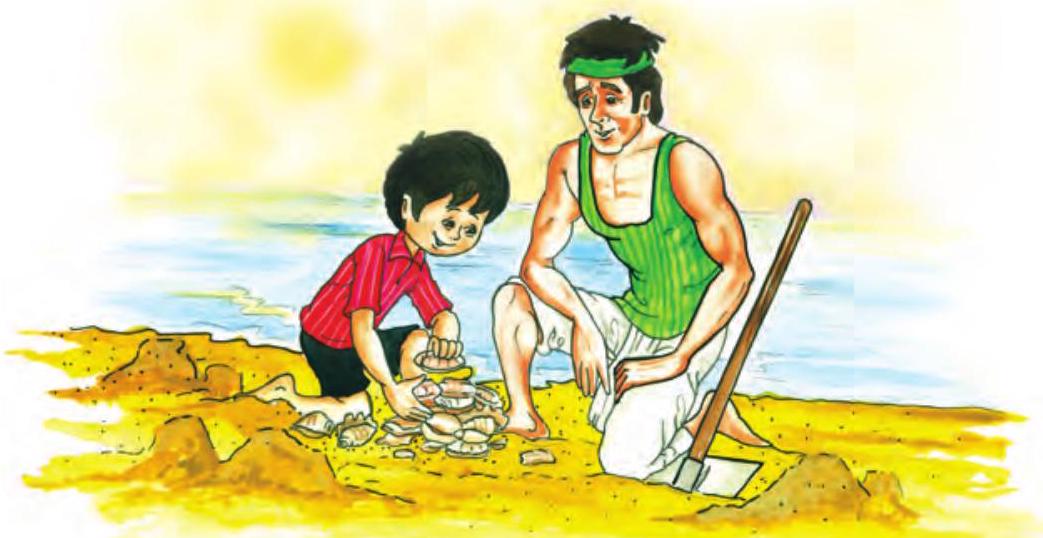Poem - The Last Bargain
A bargain is an agreement in which both parties promise to do something for each other. Someone is looking for work, waiting to be hired. He strikes a bargain but thinks it worthless. He tries twice again but doesn’t like either. Finally, in the last bargain, when he is hired for nothing whatever, he is happy as never before. What is the bargain, and why is it the best?

“Come and hire me,” I cried, while in the morning
I was walking on the stone-paved road.
Sword in hand the King came in his chariot.
He held my hand and said, “I will hire you with my power,”
But his power counted for naught, and he went away in his chariot.
In the heat of the mid-day the houses stood with shut doors.
I wandered along the crooked lane.
An old man came out with his bag of gold.
He pondered and said, “I will hire you with my money.” He weighed his coins one by one, but I turned away.
It was evening. The garden hedge was all a flower.
The fair maid came out and said, “I will hire you with a smile.”
Her smile paled and melted into tears, and she went back alone into the dark.
The sun glistened on the sand, and the sea waves broke waywardly.
A child sat playing with shells.
He raised his head and seemed to know me and said, “I hire you with nothing.”
From henceforward that bargain struck in child’s play made me a free man.
Working with the Poem
1. Who is the speaker in the poem?
2. “The king, sword in hand” suggests
(i) wealth
(ii) power
(iii) more power than wealth.
Mark the appropriate item in the context of stanza 1.
3. The old man offered the speaker a lot of money.
Why did he turn down the offer?
4. Find in the poem, lines that match the following. Read both one after another.
(i) I have nothing to give you except goodwill and cheer.
(ii) Her happiness was no more than sorrow in disguise.
(iii) The king’s might was not worth much.
5. How did the speaker feel after talking to the child on the beach?










